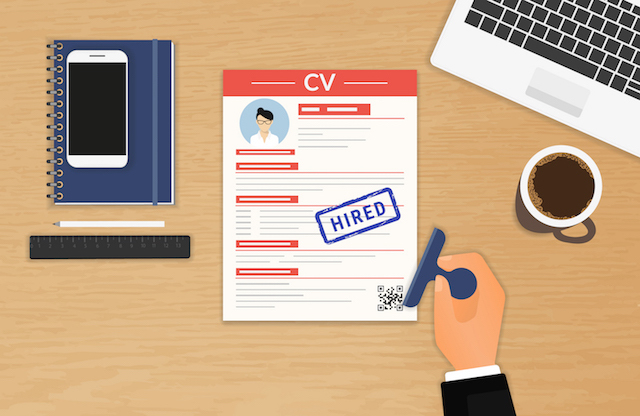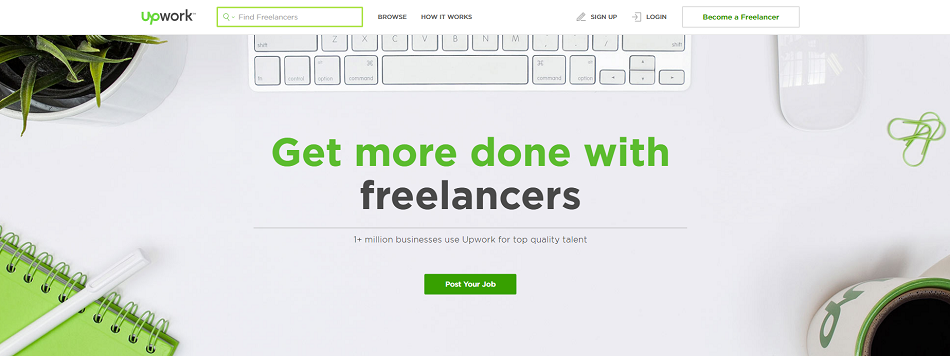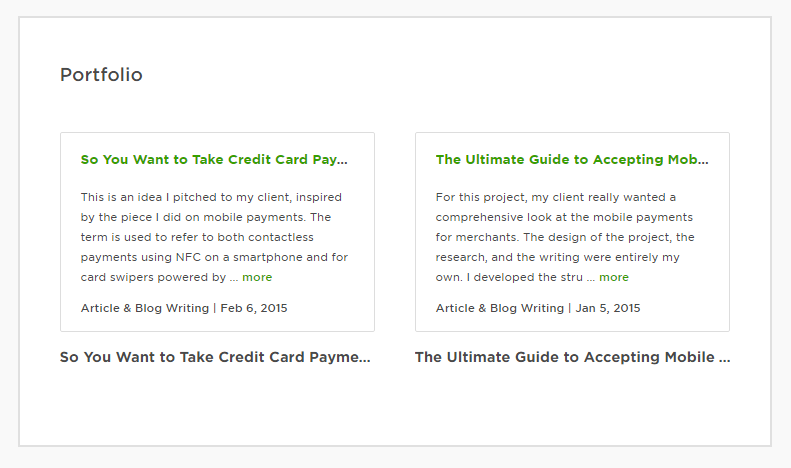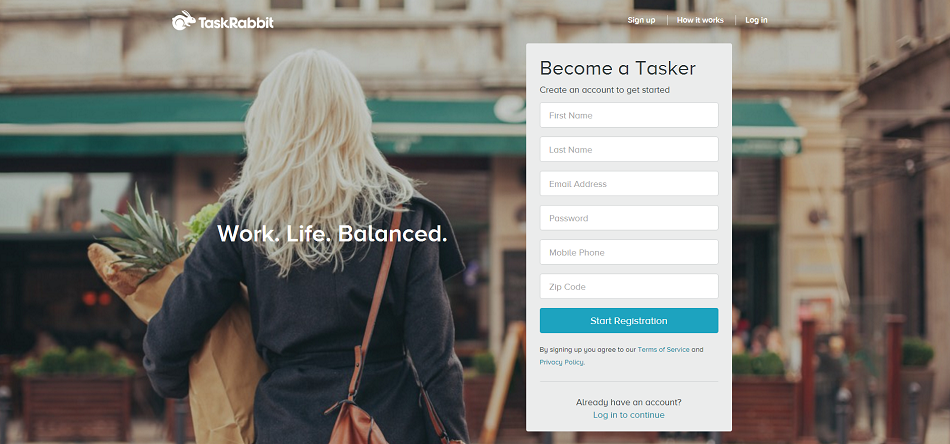A job application template will be completed by any prospective employee interested in a job opportunity.
Create a Job Application in less than 5 minutes
Professionally reviewed
Print and export to Word or PDF in seconds
A job application template will be completed by any prospective employee interested in a job opportunity. This application is going to give a potential employer the ability to learn more about the prospective employee and find out if they can legally work at the company. It will also give the employer an idea of the person's job skills and experience in the field.
The job application will include sections for different types of information, such as personal information, previous employment, job skills, and education. The best job application will be simple enough for the employee to fill out without needing guidance and easily revisable in case requirements for employment change. Look over your application to ensure you are asking for all the information you need from a future employee and leave space for additional notes.
Click here to get started now!
One of your responsibilities as a new entrepreneur is to create an employment application form. You can do this from scratch, or by using a generic job application template. The latter method can save you time, and there are plenty of employment application templates available on the internet. However, you’ll want to be sure you customize said employment application template to suit your needs.
So, first off – let’s talk about what exactly an employment application form is. An application performs the following two major functions –
Gives you a comprehensive snapshot of every applicant.
If you phrase your questions correctly, your job application will function almost like a pre-interview. Since your company is brand new, you are building your staff culture from scratch. What kind of work environment do you want to create? What kinds of people would you need to hire to build that environment ? Take some time to build a loose picture of your ideal staff.






Here are a few “either-or’s” to consider for potential employees. Which of these is more important to you?
· Concentrated industry experience vs. a broad range of experience
· Established (experienced) vs. malleable (inexperienced)
· Team player vs. solo worker
· Task-oriented vs. goal-oriented
If any of these sticks out as important, you might want to work it into your job application. Questions such as the following can work well:
· Would you consider yourself more task-oriented or goal-oriented?
· Describe your favorite job to date and tell us why you loved it.
· Describe what special qualities you would bring to the [company name] table.
Questions like these make applicants think. It also makes the job application template seem more human and friendly, which puts applicants at ease. Reading the answers will give you a window on each applicant’s personality that you would not gain otherwise.
Gives your applicants a sense of your company.
As I mentioned above, asking specific, one-on-one-type questions will put your potential employees at ease. It will also give them a sense of your company’s attitude . What kind of brand image do you want to project? If you’re going for a formal environment, you don’t want to use a casual, matter-of-fact tone in any of your questions. If you plan on running a more laid-back office, having a friendly edge will let your applicants know. Here are a few examples of formally vs. informally voiced application questions:
| What You Want To Know | Formal | Informal |
|---|---|---|
|
What special qualities can the applicant bring to the table? |
Describe your main professional strengths. What can you offer [Company Name]? |
Tell us about yourself! How will you contribute to the success and overall awesomeness of [Company Name]? |
|
Is the applicant capable of problem-solving? |
Describe a situation at a previous job in which you made a mistake. How did you solve the problem? |
Tell us about a time you messed up at a previous job. How did you deal with it? |
|
Would the applicant be a good fit in your company’s environment? |
Which of your previous jobs was your favorite? Explain why. |
What’s the best job you’ve ever had? Tell us about it. |
See the difference? The first set of questions broadcasts suit and tie and boardroom, the second casual dress and office hockey. It’s all about the image you want to promote.
These are the two big things to keep in mind when you’re drawing up your application or editing the generic job application template. Whether or not you’re at the hiring stage, I recommend getting a start on the process. Try downloading a employment application template from a reputable website and playing around. Your job application is one form you definitely are going to want in place when the time comes.

If you’re just starting out as an entrepreneur, you will need to master the art of creating job applications. Drawing up an application is more complex than you might imagine. As with any official document, it comes with its own set of legal hurdles to jump and/or avoid. As your job application is essentially an interaction with a stranger, you’ve got to take care of your image. Basically, you need to run some serious PR during the formation of your application. To make it easy for you, I’ve outlined a few checkpoints below:
State the obvious.
This is the real art in the construction of legal documents. None of us enjoy this. Well, many of us don’t. But the thing about legal documents is that they are just that – legal. Their terms dictate the nature of the action they perform.
- Include a statement saying your business is an “Equal Opportunity Employer.” This may sound like a no-brainer, and it really should be, but omission of this statement gives spurned applicants the opportunity to make a legal fuss. And believe me, an entrepreneur just starting out does not need any bad press from the peanut gallery.
- Make sure that somewhere on the job application form there is a line stating that submission of the application does not guarantee employment. You wouldn’t believe how many people have been known to take advantage of this.
- Do not use, anywhere on the job application template or at point during the hiring process, adjectives that could be interpreted as preferential. In other words, no descriptors that imply age, race, sex, sexual orientation, religion, marital/family status, arrest history, financial status, disability. Instead, include a line that explicitly states you will not discriminate based on any of these qualities.
Review your federal obligations.
If by chance your business is a federal contractor, be sure your application complies with OFCCP standards. You will also need to follow these standards for recordkeeping. Just Google OFCCP and go to the government website to review them.
Review your local obligations .
Be sure your application questions comply with all state and municipal regulations. Visit the official web sites of your state, city and county to view their requirements.
Keep the questions generic .
Don’t include any questions about ethnicity/race, gender or marital status. You should also not include questions about social or political affiliations. This will only call into question the outright statement (suggested above) that you do not discriminate.
Don’t be scared to ask for help
It’s hard, as a first-time entrepreneur, to draw together an application that is both probing and legally innocuous. However, there are a few shortcuts you can take.
Hire a professional to do it for you – Many legal writing firms and freelancers would be more than happy to take your money and create your company’s applications. You’ll end up with a decent product. The trouble is, this provides an extra expense.
Draw it up yourself, then get a lawyer to review it – Again, the pro? Safety. The con? Money. Only do this if you have a trust fund or virtually no stake in the business.
Draw it up freeform – You might fare okay. You might crash and burn. Keep in mind that as the head of a brand new business, you have a lot on your plate already. You don’t want to overwhelm yourself, or under-work the employment application . Both your documents and your energy are, after all, cornerstones of your start-up.
Use a job application template – For new bosses, a job application template is often the best way to go. There are numerous job application forms available on the Internet. You just pick a form, fill in the boxes and boom! You have a blank job application fully tailored to your business.
The one thing about this method is that you need to use a reputable source. There are plenty of actually job application forms out there, but there are also plenty of “free” blank job applications that, as the quotations marks suggest, come with some hidden costs. Do your research on consumer review websites, and choose wisely.

So you’ve gotten to that point every burgeoning entrepreneur dreams of. No, not the point of sale. I’m talking about the point at which you start needing to hire employees.
Hiring can be a tedious process, especially for new businesses. You want to be sure you hire exactly the right people, people who sparkle and excel at their jobs and complement your brand and business perfectly.
For most new businesses, the hiring game isn’t going to reel in any experts. Your pay scale simply isn’t big enough. You are, however, going to meet a variety of interesting and qualified individuals who want to grow with your business and take part in its evolution. This might sound like heaven or a nightmare to you, but if the latter is the case, open up. All you can do is post your ad and screen applicants carefully. A decent job application can make this process easier. Below, I’ve listed the main components a job application should contain.
Personal Information
· Full legal name – Include a space for first name, last name, and middle initial.
- Also ask if the applicant has gone by any other names or an "A.K.A.".
· Current address – This should either be the address where the applicant currently resides or, if they’re moving, where they will be residing at the time their employment would start.
· Mailing address - Specify that they only need to list this if it differs from their home address.
· Date of birth – You’ll need to verify that the applicant is old enough to work in your region.
· Telephone number(s) - Provide spaces for home, work and cell.
· Email address
· Verification of applicant’s eligibility to work
Employment History
Ordinarily, you should provide spaces for 3-5 entries and request the following pieces of information:
· Dates of employment - Be sure that the job application instructs applicants to list their most recent job first. This will make life easier for you, as
· Company name and street address
· Job title
· Summary of duties - Leave plenty of space for this.
· Reason for leaving
· Supervisor information - This should include spaces for the supervisor’s full name and his or her contact information. Include spaces for both a phone number and an email, as some applicants might not have supervisors’ phone numbers.
Other questions
· Has the applicant ever convicted of a crime? Leave a space for explanation.
· Is the applicant a veteran? Leave a space for duty and specialized training.
Education
Include spaces for high school, college, business/technical school, and miscellaneous or “other.” Be sure that you leave enough room in each category for multiple schools.
Training and Special Skills
Depending on your industry, this can be an open section or include special areas . For example, if you run a security company, you might want to provide spaces for military or police training, special licenses and levels of education. For a desk job, you might want to specifically ask for clerical skills, such as typing speed, proficiency in programs such as MS Office, or special training such as speed-reading or translation.
Contacts
· Emergency Contacts – Always ask for two – you don’t want to be left with only one number if something bad happens.
References – Standard procedure is to ask for three references. These references may be personal or professional, but must not be related to the applicant. Encourage the applicant to include a combination of personal and professional references so as to paint a round, solid picture of his/her personality.

College life is undoubtedly hectic! Between coursework, major projects, and exams — not to mention the fun stuff — it can feel like there's scarcely a free moment. But it's not uncommon for college students to end up needing a little bit of extra cash.
The good news is, when you need some spare cash quickly, you don't need to pick up extra shifts waiting tables! More jobs than ever are available that allow students to work from home (or dorm) on their own terms. This allows you to earn money when you need it, and build up your resume and portfolio even before you graduate!
Let's take a look at 5 great ways to supplement your income while you're still in college:
Freelancing can often sound like something only mid-level professionals do, but the fact is, it's a great way to college students and recent college grads to get their feet wet!
There were some 15.5 million self-employed individuals in the U.S. in May 2015 — an increase of about 1 million over May 2014, according to the Bureau of Labor Statistics. It's estimated that 40% of the US workforce (some 60 million people) will be freelancers, contractors, or temporary employees by 2020.
Freelancing allows you to choose your own clients and pursue any opportunities that interest you. Web design, graphic design, writing are common freelance jobs, but you'll also find clients in need of virtual assistants, research assistants, sales and marketing support, customer service, medical transcription, coding and programming, online data entry, 3-D modeling, musical composition — even voiceover work!
Online platforms can connect you with clients all over the world and ensure you get paid for the effort you've put in! One of the biggest websites for freelancers is Upwork, with more than 12 million contractors from around the world. You can seek out clients, but they can also explore your profile and invite you to projects. Upwork lets you set your own hours and workload — take on as many or as few projects as your schedule allows!

To start out on Upwork, you'll create a profile to highlight your skills and accomplishments, then upload portfolio pieces and take tests to highlight your skills.
Your profile is kind of your home page. It's where you'll outline your job history, educational background, and your skills, as well as any qualifications, certifications, or professional memberships. Upwork has some great sample profiles for you to check out here.
You can also upload any portfolio pieces, which is a great way to showcase your skills if you don't have much actual work experience under your belt. This can include writing and design projects, as well as website links.

Upwork's system relies on Connects — think of them as a virtual currency that allows you to apply for jobs. You have a specified amount to use each month, but don't worry — you can apply to plenty of jobs! If you find yourself going through a lot of Connects, you can upgrade to Upwork's Pro plan for $10/month to get extra Connects, plus the option to purchase more as needed.
Beyond that, the application process is pretty similar to traditional hiring. Once you apply for the job (Upwork calls it "submitting proposals"), the client can decide whether to begin an interview process. You'll schedule a time to talk with client, discuss the project requirements and your skills, and hammer out any details. Then, the client can make an offer, which you'll need to accept before you can get working!
One of the nicest things about Upwork is that as long as you use the time-tracking app, you are guaranteed payment. You can also do fixed-price jobs with milestones, with the funds held in escrow. In traditional freelancing, it's up to you to handle the invoicing and ensuring your clients pay — but Upwork eliminates that trouble!
Some clients may want to issue you a small trial job before they start the larger project. However, don't ever let yourself fall into the trap of giving away free work. Upwork's terms of service prohibit unpaid trials.
That's the basics of using Upwork. However, there are many other platforms you can choose to work! These include Textbroker (for writing only), Freelancer.com, and Outsource.com. Each works a bit differently, and it'll be up to you to figure out which one you prefer!
Fun fact: Businesses want to know whether a website or new app will appeal to users before they launch it. Another fun fact: They will pay to find out!
Enter UserTesting.com. This platform allows major clients to get feedback on their apps and websites by contracting out to people seeking some quick cash. Once you've created your account, you can log in and pick up a project. All you have to do is visit a website or app and complete a series of tasks.

UserTesting.com asks you to talk outloud while you perform the series of tasks. You'll need a microphone, and you must download the site's screen recording software.
During the application you'll complete a sample test and provide some basic demographic information. Then, UserTesting.com will send you alerts when new tests are available.
Just 20 minutes of your time will earn you $10 — meaning you could earn up to $30/hour this way. The site pays its testers via PayPal, so you'll have to have a PayPal account.
![]()
Do you live on Facebook, Instagram, or Twitter? It's sad to say, but plenty of businesses still have very little idea how social media works. That's problematic given that social media isn't just about posting updates — Facebook pages and twitter feeds are becoming a hub for sales as well as customer service.
Social Media Examiner found in its own survey that 96% of small businesses used social media, and 92% agree that it is important to their business.
Despite that, though, most of the people using social media to market their business don't know if their efforts are working. Part of this may be a lack of understanding of the platform or how to measure metrics. That's where you come in!
Businesses need to get a better handle on how to manage all of their social channels. And they're willing to pay qualified experts to handle social media for them! Whether you find a local business willing to hire you on part time, or go the freelance route, this is a great way to enhance your resume and establish some very real successes.
The good news is the social media doesn't have to be a full-time job, even in a world that is always connected. Social scheduling tools such as Buffer or Hootsuite give you the flexibility to create posts ahead of time, so it looks like you're online even when you aren't, so you can create a schedule that works for your needs, and your clients'. You can even manage social media on the go!

Looking to up your social media game? Consider getting Hootsuite certified as a way to show your clients you understand how to really use this platform and know the best practices for social media.
Tutoring is actually an old standby for college students looking to make some extra cash. Your university probably has a tutoring program in place, and if you check out the bulletin boards on campus or at your favorite coffee shop, you'll undoubtedly find people offering tutoring services for a wide range of subjects.
But this is the digital age, and you don't need to rely on the old-fashioned way. Online tutoring through companies such as Chegg and Tutor.com are just as viable, and best of all you can still set your own hours. You may find yourself tutoring middle school or high school students, or even college underclassmen or professionals looking to expand their skills!

The most popular subjects are science and math, but plenty of people need help with foreign languages and essay writing as well! You may also find a demand for other more specialized subjects depending on how you go about the process.
Kaplan Testing also hires tutors to prepare people for standardized tests such as the ACT, SAT, and GRE — if you have the scores and qualifications, it can be a great option.
You've probably heard about this line of work even if the words "Gig" or "Shared Economy" before — it's the same model that services such as Uber and Lyft use. This on-demand workforce — the "gig" economy, consists of about 600,000 people. That's an admittedly small number compared to the overall workforce (just 0.5%) but it's also growing.
And while you can certainly try ride-sharing as a way to pick up some extra cash, you can also put all sorts of other skills to work using sites such as TaskRabbit and GigWalk.

Instead of hourly work, these sorts of projects generally pay per-gig, and you can choose projects that take just a few minutes or several hours. TaskRabbit is more for errands, cleaning, delivery, and repair services, while GigWalk focuses more on helping retail companies (anything from staffing to checking stock levels in a store).
There are even specialized sites for pet owners who are looking for someone to look after their pets, such as Rover and DogVacay.
There's no question that that the job market is changing! People are working in fundamentally different ways — ways that give them more freedom and flexibility than ever before. As a college student, it's important to have flexibility in your schedule. Whether you choose freelancing, tutoring, or even just running errands for other people, any of these quick cash-earners allows you to make money on your own terms while still enjoying the college experience to the fullest.